For this Veterans Day, just two months after the end of U.S. military operations in Afghanistan, Responsible Statecraft asked several recent veterans who served in that country if they would share their thoughts, responding to this one question:
“This is the first Veterans Day in 20 years in which the United States is not conducting combat missions in Afghanistan. How do you feel today about your service, and do you think your own outlook about military service and the future of the American military operations overseas has changed? If so, how?
***
Dan McKnight, USMC, United States Army, and Idaho National Guard, founder and chairman of the organization Bring Our Troops Home
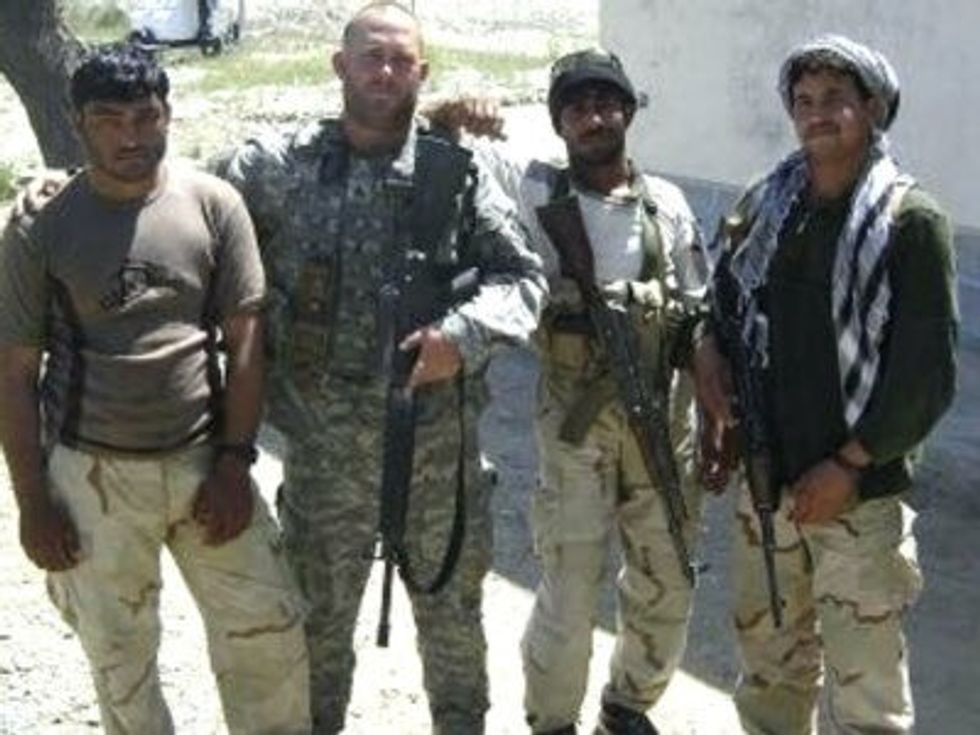
I will never regret my 13 years under the command of the United States military. I am proud to have given something of myself to the nation which has given me so much. The lesson of my youth, and the lesson I impart to my children, is that Americanism is synonymous with service. Although I increasingly ask myself: service to what?
A humble republic, the society of law and liberty bequeathed to us by our Founding Fathers? Or a global empire, the gross rejection of representative government which sends our service members to every corner of the Earth to supplement its own domination?
I believe the U.S. withdrawal from Afghanistan was a positive thing, albeit tactically mishandled. I’m happy no future soldier is going to risk their life walking the same mountains and dirt roads I did, fighting a war that doesn’t make his neighbors safer or freer.
Unfortunately, the structure of American military operations overseas has not changed. We are ruled by a president who claims the authority to take our country into war anywhere, at any time, and for however long with no accountability or debate.
That is why we still have thousands of soldiers occupying Syria and Iraq. It’s why our military is intimately involved in Yemen, the Horn of Africa, and elsewhere. And now we are even deploying troops to Taiwan.
I swore an oath to protect and uphold the United States Constitution which says only Congress, the people’s representatives, can declare war. Until this is enforced, we will not have a government worth serving.
***
Adam Weinstein, research fellow at the Quincy Institute, deployed as a U.S. Marine to Afghanistan in 2012.
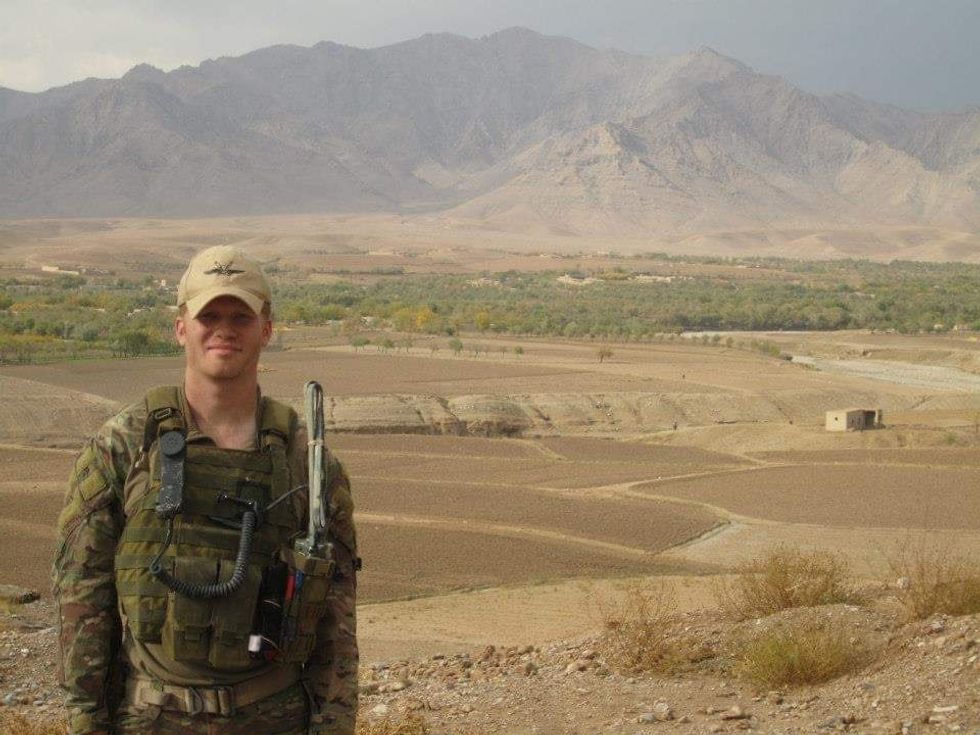
“I wanted to deploy. I competed to deploy.” I’m usually met with confused stares by the non-veterans over a statement that seems so obvious to other vets.
My generation of vets joined during wartime with the intention to deploy. The reasons vary but for the most part I’ve found that few vets joined to escape a dead-end existence or out of some sense of star spangled patriotism. Most joined for the camaraderie, adventure, and idealistic pursuit of purpose that drives most youthful decisions, both good and bad. I know some vets have struggled with the outcome of our war in Afghanistan and what it means for how they spent months or even years of their younger lives. For me service is for one’s country — not the individual mission — and the continued willingness of young people to volunteer for our military is directly responsible for the personal freedom enjoyed by all to choose not to. This is what “fighting for your freedom” really means. And yet when someone thanks me I find myself embarrassed because my service was not a burden.
Veteran’s Day is a time to be proud, not somber. I’m proud of the selflessness, determination, and ability of our military to evolve on the battlefield and in the barracks. But the all-volunteer nature of our fighting force and bright-eyed enthusiasm of its recruits must never again be misconstrued as a blank check to nonchalantly send young men and women into harm’s way.
***
Esti Lamonaca, U.S. Army, OEF Veteran 2015-16, National Manager, Common Defense
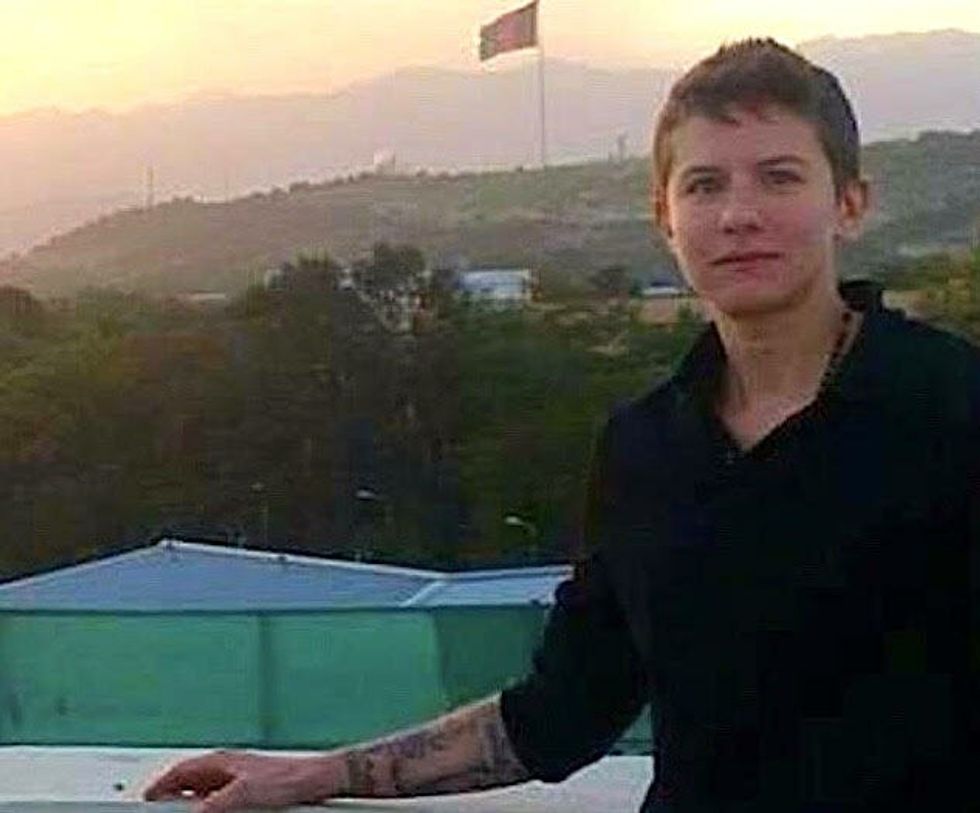
I joined the U.S. Army because I wanted to make a bigger impact in the world and be the hero that soldiers were always pictured to be. I did not know about the military industrial complex, I did not know about the very real costs of war, I did not understand endless wars. Since I returned from Afghanistan in 2016, I have had a complete shift in my understanding of military service.
Veterans Day came about to reflect on “the war to end all wars,” yet we spent 20 years fighing the forever war in Afghanistan. Veterans Day is when we get thanked for our service, while too many continue to bear the brunt of America’s forever wars. This year, veterans have our usual one day while Congress has an entire week of recess. We have one day for the media to put our faces on the front page to remind our country to honor the many veterans who have sacrificed their lives. We have one day to honor the surviving American veterans, military families, and Afghans who are continuing to feel the brutal cost of our mistake of entering into an endless war in the first place.
So, has the future of American military operations overseas changed because we ended another war? Absolutely not. This is not the first time, and unless our country finally learns from this, it won’t be the last. The United States is still not holding anyone accountable for the forever war in Afghanistan. There are still the 2001 and 2002 AUMFs. There is still the military industrial complex that pushed back on withdrawing U.S. troops so that they could continue to profit off war. There are still politicians in charge of making decisions for the military that don’t understand the costs of war.
***
Dan Grazier, Marine Corps captain, served tours in Iraq and Afghanistan. He is currently the military fellow with the Center for Defense Information, Project on Government Oversight.
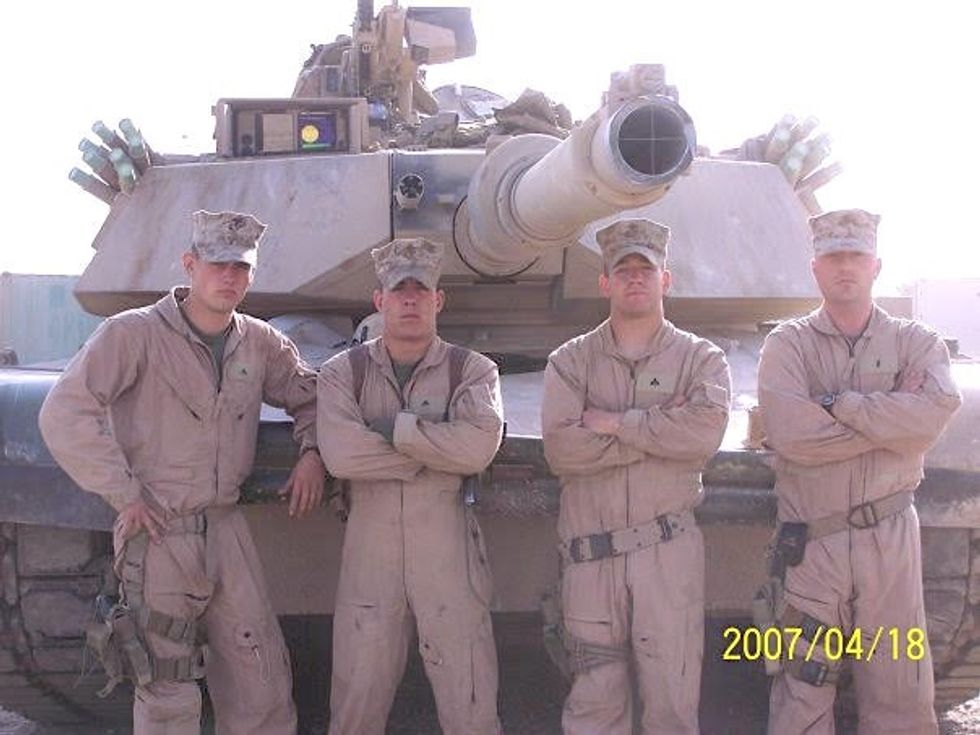
I put my first career on hold to join the Marine Corps after 9/11. It’s easy to think that the time I spent in Iraq and Afghanistan as wasted now that we know the results, but I don’t regret my decision to join. I focus now on the missions I led to protect my fellow Americans. I know there are many people alive today because my Marines and I were there in our tanks to keep them safe.
Despite the losses overseas, serving in the military was a great experience. I met and worked with thousands of great young Americans from all corners of the United States and from all walks of life. The dedication of the men and women with whom I served inspired me to do all I can to make sure everyone who follows them is well-served by their leaders in Washington. Military service isn’t for everyone, but I encourage young people to join because it can be an incredible growth experience and provide opportunities they would not have otherwise. I believe this so much that when my son joined, I wholeheartedly supported his decision and proudly watched when he graduated from boot camp in September.
With that being said, I do pray that his leaders in Washington have properly absorbed the lessons of the last 20 years and don’t take advantage of his youthful enthusiasm by sending him to any far-off place for anything other than the defense of our vital national interests.
***
Matthew Hoh is a 100 percent disabled Marine combat veteran and resigned his position in 2009 with the State Department in Afghanistan in protest of the escalation of the war. He is a senior fellow with the Center for International Policy and a member of the Eisenhower Media Network.
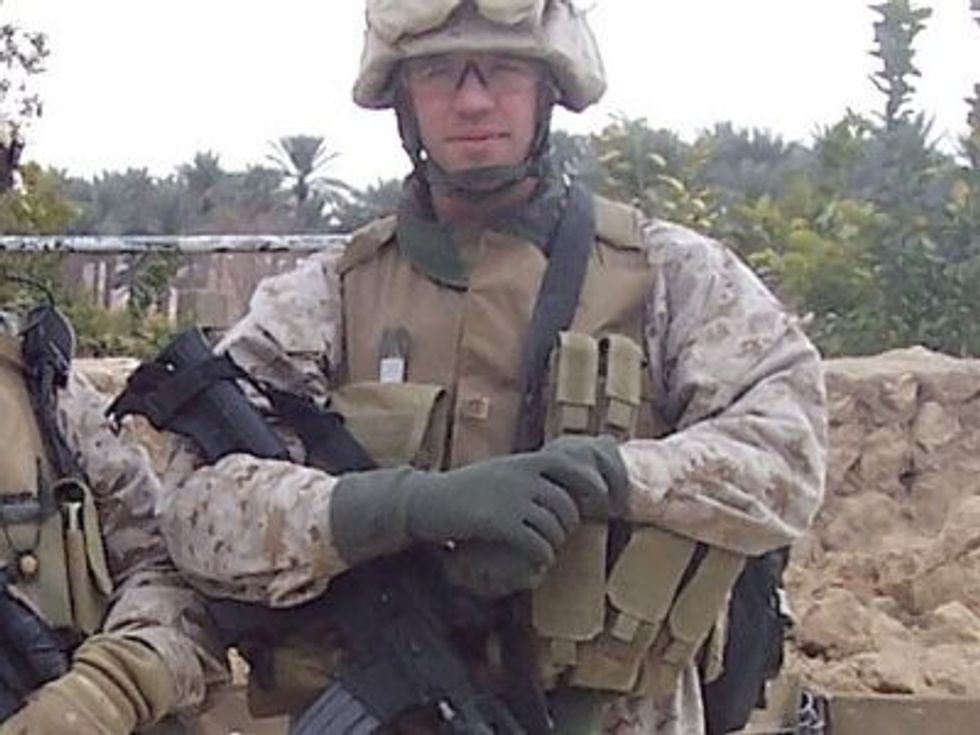
I come to this Veterans Day with dread. I often am asked what the United States will learn from its wars in Afghanistan and Iraq? The answer is: U.S. political and military leaders learned their lessons from these wars and have been implementing that knowledge for nearly a decade now.
The mass unpopularity of the wars, waged by both Republicans and Democrats, and the electoral backlash the wars engendered in the 2006 midterms, 2008 Democratic primary and general election, and 2016 general election, have led the U.S. political establishment, with a very willing Pentagon, State Department, and CIA in agreement, to hide these wars.
From the west coast of Africa to Pakistan, the United States is engaged in secret wars with commandos, drones, contractors, and proxies in somewhere between one and two dozen countries. Congress is unaware of much of this activity, including combat, while retired generals have bragged they have been able to keep U.S. casualties in these wars hidden from the Congress, the press, and the American people. Without an overt troop presence, akin to the Afghan and Iraq wars through 2013, there is little media attention, and without noticeable American blood loss, there is little public action that frightens politicians.This is why I come into this Veterans Day with dread. For if after two decades of visible wars that delivered unimaginable suffering onto tens of millions throughout the Muslim world and ruined the futures for hundreds of thousands of American families, there has been no accountability and no justice, then what will come after two decades of these invisible secret wars?
***
John Byrnes, a veteran of both the U.S. Marines Corps and the U.S.Army, with deployments to Somalia, Iraq, and Afghanistan. Director of Education, Concerned Veterans for America.
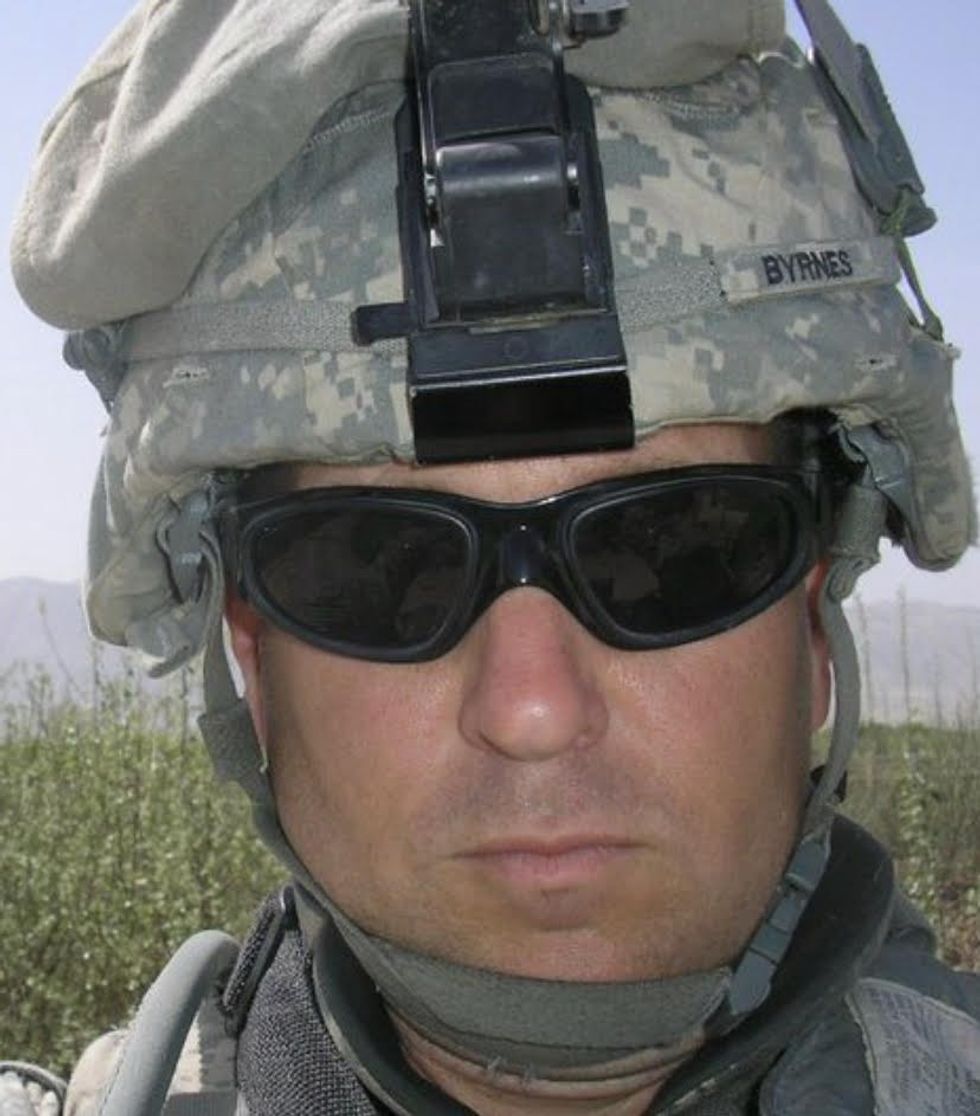
My military service spanned the better part of three decades; I initially enlisted in the U.S. Marine Corps during our first war against Iraq in 1991. My first overseas deployment was to Somalia to support a humanitarian relief mission. During my brief time there I was shot at, and one young U.S. Marine was killed, months later after the mission changed and expanded, 19 Americans died needlessly.
In 2001, I found myself in uniform again standing guard at ground zero in New York City. I had taken a break in service, but re-enlisted this time into the Army National Guard, in 2000.
I served in Iraq where I worked to secure a future for the community we patrolled, and I helped pursue justice for Saddam Hussein, who had brutalized that town, Ad Dujayl, decades earlier. Even then, my comrades and I chafed at the convoluted and confused strategy, the constant changes in the jargon that leadership believed mattered, but didn’t, like after July of 2004 changing the name of the enemy from Anti-Coalition Forces to Anti-Iraqi Forces, while failing to use tactics that would secure success.
When I deployed to Afghanistan in 2008 as part of the then six-year old mission to train Afghan soldiers and police to secure their own nation, I along with my comrades bumped into a flawed top-down strategy that was disconnected from what was realistic and possible in Afghanistan.
Still, for years I bought into our need to prevail there in the greater Mideast. By 2018 my eyes began to open, and I realized we were pursuing a generally flawed approach to the region and that our long running wars were not promoting security.
This Veterans Day is the first in two decades where no American service members are openly deployed in Afghanistan. I am glad that this is so. There are, however, troops in harm’s way elsewhere like Syria. We should demand that unless a serious threat to U.S. national security exists in places like Syria, these troops come home too. Wouldn’t it be great to celebrate a Veterans Day in peace?
***
Yichen Yao, served in the US Marine Corps from 2012-2016, and deployed in 2013 with Combat Logistics Battalion 6 in support of Operation Enduring Freedom
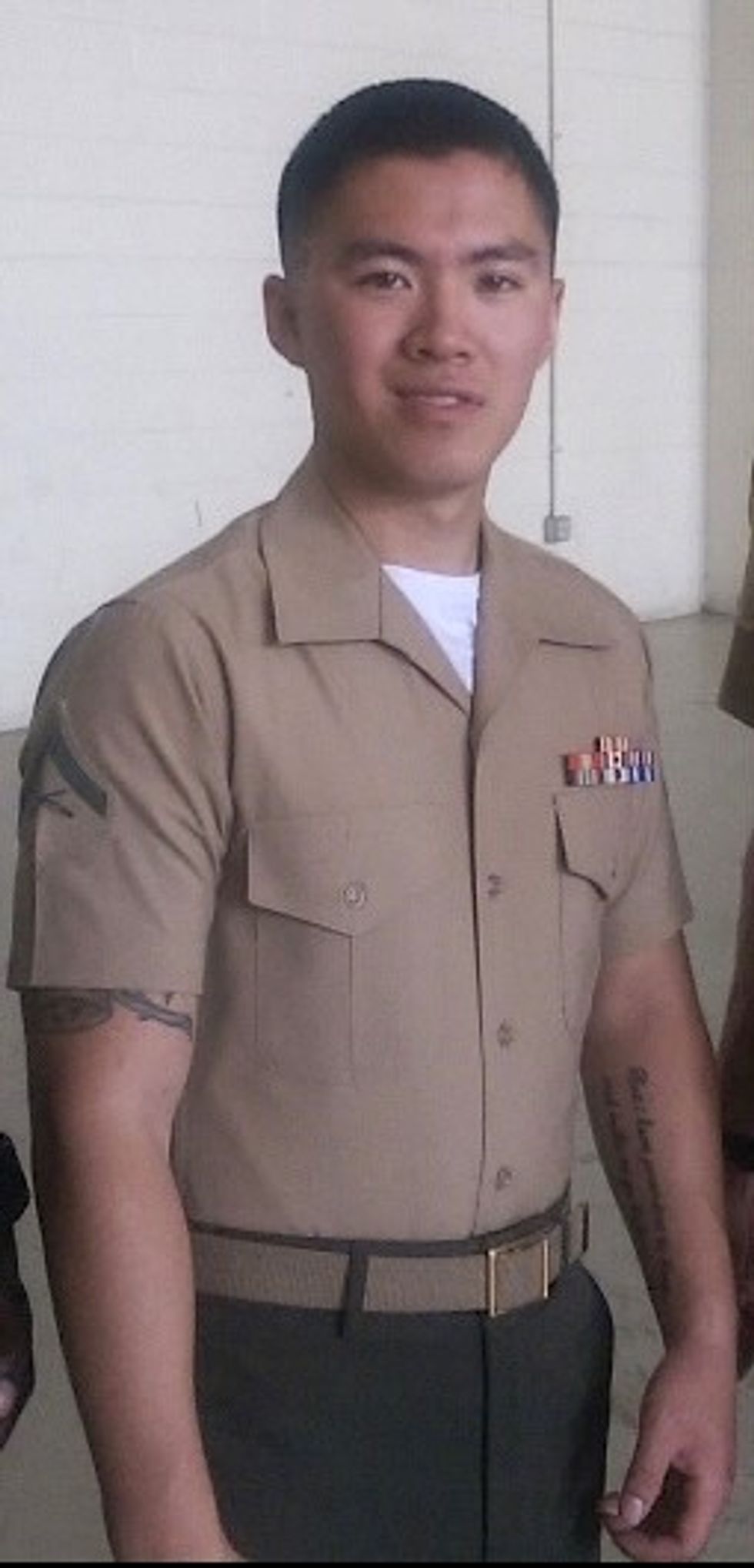
I remember when I first found out I was deploying to Afghanistan, I was so honored to serve my country, so excited to experience war. The United States fights terrorism and spreads freedom and democracy around the world, how can anyone be against that? I was young and naive. Was I really serving my country? I was certainly serving U.S. interests. But now as I reflect back on my service and my role in the war, I find myself increasingly thinking about the Afghan people, who bear the brunt of the devastation.
A Brown University study has revealed that 38 million people have been displaced as a result of the U.S. post 9/11 wars with at least 5.9 million in Afghanistan alone — the creation of a new diaspora, a Middle Eastern Diaspora. As a Chinese American in the West, my family was brought here by the Asian Diaspora, which was also caused by the U.S. imperialist wars in Asia. I reflect on how similar my immigrant story is to that of the Afghans, only this time I personally had a role in their displacement. Through ignorance, I went from being the displaced to becoming the displacer. But as a junior Marine you’re not really thinking about the larger impact of what you’re doing, rather you’re focused on the mission.
This Veteran’s Day as the United States pivots to Asia, I reflect on what is to come and hope that a future diaspora isn’t on the horizon.















